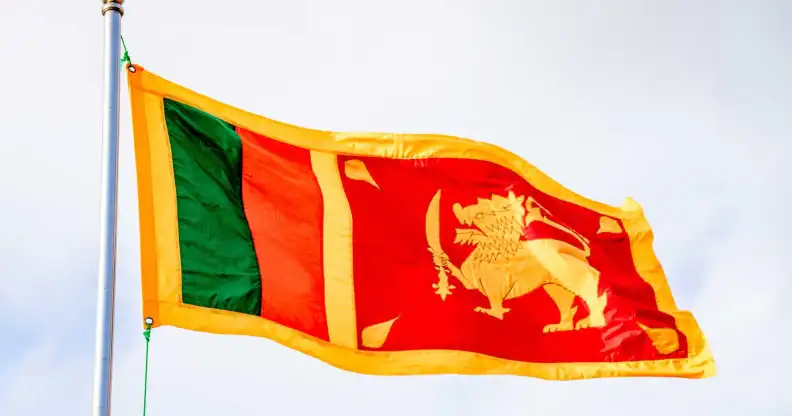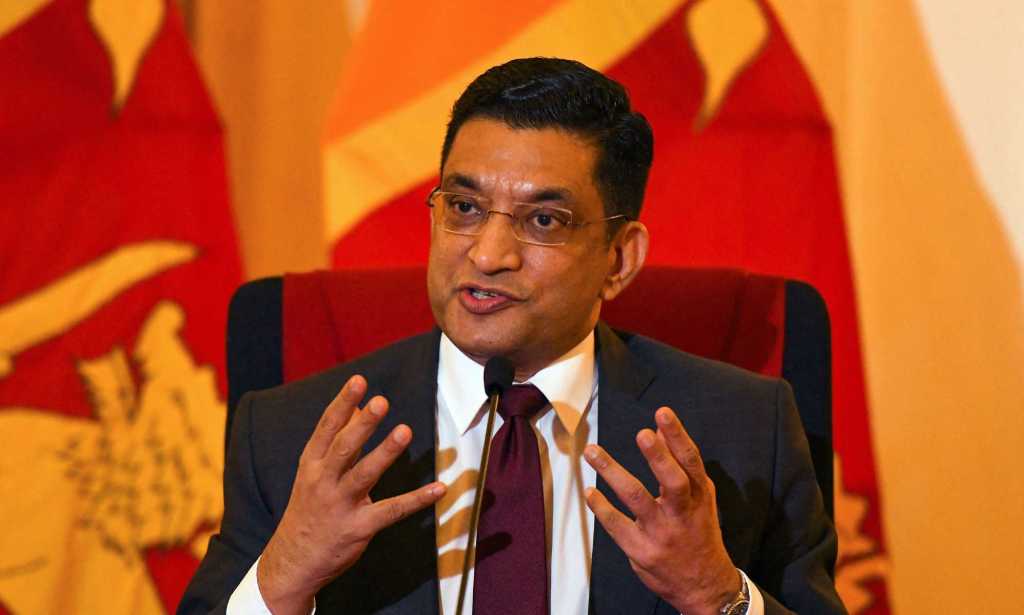Sri Lanka to finally decriminalise homosexuality

The Sri Lankan flag is pictured (Pexels)
The Sri Lankan government has expressed support for a bill which would see same-sex relationships decriminalised.
On Thursday (9 February) the Sri Lankan government’s minister of foreign affairs Ali Sabry told The Daily Morning: “There is a Private Member Bill initiated by Sri Lanka Podujana Peramuna (SLPP) Government MP and Attorney Premnath C. Dolawatte.
“The Government will support its position of decriminalising same-sex relationships. We are, however, not legalising same-sex marriages.
“But, we would decriminalise it. I think that there is a lot of consensus for that, so let that come to Parliament.”
Under the country’s penal code, which harks back to British colonial rule of Ceylon, article 365 currently criminalises “carnal intercourse against the order of nature any man, woman, or animal” with a penalty of up to ten years in prison.
The more than 135 year old British law was previously ruled unenforceable by Sri Lankan’s Supreme Court but remains on the books.

“We are very optimistic, but cautiously so,” Rosanna Flamer-Caldera – executive director of LGBTQ+ Sri Lankan organisation EQUAL GROUND – said to the Washington Blade on Friday, “It’s been more than 19 years that our organization has been advocating for decriminalization and it’s good to see the work bearing fruit, finally. But it’s still a long road ahead.”
Support for the bill comes as several other ex-British colonies have decriminalised archaic anti-LGBTQ+ laws in recent months.
Lawmakers in Singapore repealed the country’s colonial-era sodomy law in November, while judges in 2022 also struck down criminalisation statutes in St. Kitts and Nevis and Antigua and Barbuda.
Across the world, 67 countries still criminalise private, consensual, same-sex sexual activity.
The majority of these jurisdictions explicitly criminalise sex between men via ‘sodomy’, ‘buggery’ and ‘unnatural offences’ laws. Almost half of them are Commonwealth jurisdictions.
11 countries have jurisdictions in which the death penalty is imposed or at least a possibility for private, consensual same-sex sexual activity. At least 6 of these implement the death penalty – Iran, Northern Nigeria, Saudi Arabia, Somalia and Yemen – and the death penalty is a legal possibility in Afghanistan, Brunei, Mauritania, Pakistan, Qatar and UAE.
How did this story make you feel?

